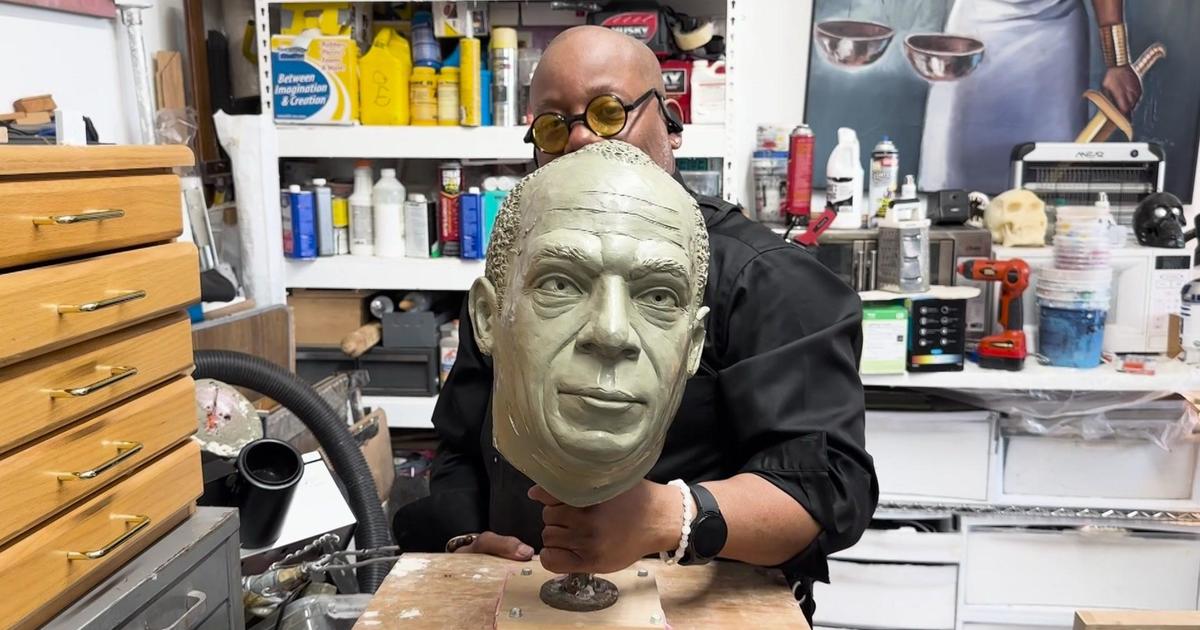Microchip May Fix Damaged Cells And Organs, Scientists Say
COLUMBUS, Ohio (CBSNewYork) -- It sounds like something out of a sci-fi novel -- a microchip that rescues injured or failing organs.
As CBS2's Dr. Max Gomez reported Tuesday, the breakthrough in regenerative medicine is actually being tested right now.
One of the hottest areas of medical research is using cells instead of drugs to treat diseases and injuries. But cellular therapies require finding or making the right type of cells, which can be difficult.
It turns out the body can do it on its own, with a little high-tech help.
The device is only about the size of a cufflink, but what it could represent is enormous. In a laboratory at the Ohio State University Wexner Medical Center, researchers demonstrated how it reprograms cells.
The chip is simply placed on an injured part of the body and a small electrical current is applied.
"This process only takes less than a second and is non-invasive and then you're off," said Dr. Chandan Sen of Ohio State Wexner Medical Center. "The chip does not stay with you, and the reprogramming of the cell starts."
That reprogramming turns skin cells into nearly any type of cell doctors might need to treat a patient – a breakthrough technology in regenerative medicine.
For example, in a leg that is badly injured and lacks blood flow, doctors simply touch the chip to the leg and reprogram the skin to become functioning blood vessels.
"And it will quickly shoot the DNA right into the cells," said Dr. James Lee of the Ohio State College of Engineering.
"In many cases in seven days, you start seeing changes and these changes to our pleasant surprise persists," Dr. Sen said.
Within a week, there are active blood vessels and by the second week, the leg is saved.
It is important to note that the procedure has not yet been tested in humans. But after developing the concept, researchers were determined to test it in real life.
"So we tried them on the mouse and put it on the skin, and you know what? It actually works," said Dr. James Lee of the Ohio State College of Engineering. "It affects the entire tissue, not just the surface."
An image shows the mouse's leg is injured, and vascular scans show there is little blood flow. But after one touch with the chip, in just three weeks, the blood flow was back and the injured leg was saved.
"Our technology is not just limited to be used on the skin," Dr. Sen said. "It can be used in other tissues within the body or outside the body, so on and so forth. So, skin is only one example."
In fact, in lab tests the chip even worked in the brain – helping mice recover from strokes. In humans, it could allow doctors to grow brain cells on a person's skin under the guidance of their own immune system.
They could then harvest the cells and inject them into the brain to treat conditions such as Alzheimer's disease and Parkinson's disease – without any immune suppression drugs being necessary.
The electrical current actually opens up channels in the skin cells that allow the delivery of factors that are known to change the expression of certain genes in those cells. Better yet, the reprogramming doesn't have to be in a hospital setting because there is nothing invasive about it."



